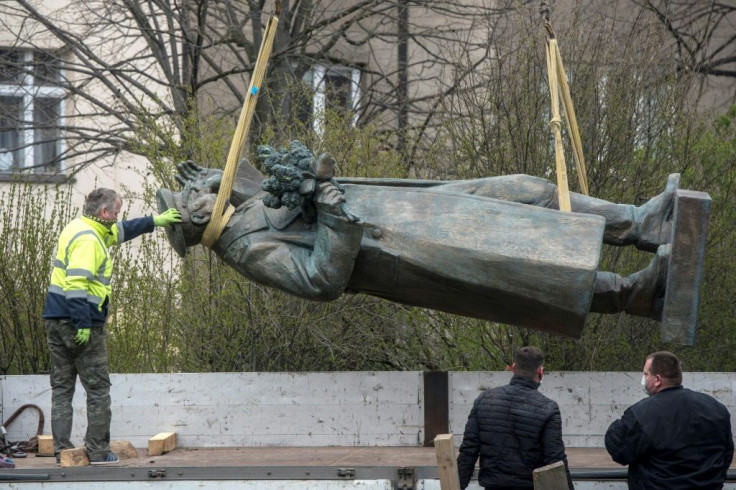Prague Mayor Under Protection After Reports Of Russian Plot
Prague's mayor said on Monday that he was under police protection, but stopped short of confirming Czech media reports that he had been targeted by Russia for removing a statue of a Soviet war hero.
Zdenek Hrib clashed with Moscow earlier this month after he oversaw the removal of a controversial Cold War-era statue dedicated to Soviet general Ivan Konev, a move Russian diplomats called an "unfriendly" act of "vandalism by unhinged municipal representatives."
Regarded as a hero in Russia, many Czechs see Konev as a symbol of Soviet-era oppression.
"Protection was simply granted to me by the Czech police," Hrib told independent Russian radio station Echo of Moscow on Monday.
"It was their decision, I am unable to comment on the reasons" behind this decision, he added.
The comments came on the heels of a Monday report in the Czech weekly news magazine Respekt claiming that a Russian national using a diplomatic passport had recently arrived in Prague carrying ricin, a toxic poison that can be used as a biological weapon.

According to the Czech Denik N newspaper, "this information was one of the subjects raised by the Czech foreign minister (Tomas Petricek) with the Russian ambassador Alexander Zmeyevsky, who was warned not to take any actions against Czech politicians".
Czech police and government officials refused to comment on the matter.
Kremlin spokesman Dmitry Peskov, speaking to reporters in Moscow on Monday, said the claims made in the Respekt report were "misinformation".
Known for his pro-Russian stance, Czech President Milos Zeman criticised the removal of the Konev statue as a "ridiculous and miserable" gesture.
The Czech foreign ministry has raised the possibility of sending the Konev statue to Russia, according to Czech media reports.
General Konev led the Soviet Red Army troops that liberated Prague from the Nazis in 1945, but he was also in charge of Operation Whirlwind, which crushed the anti-Soviet Hungarian Uprising of 1956.
Konev, who died in 1973, also played a role in the 1968 Soviet-led crackdown on the Prague Spring, a democratic movement in then-Czechoslovakia.
© Copyright AFP 2024. All rights reserved.





















